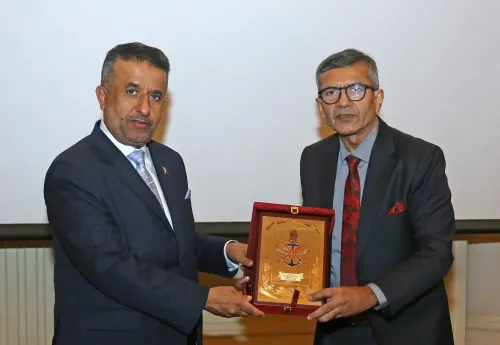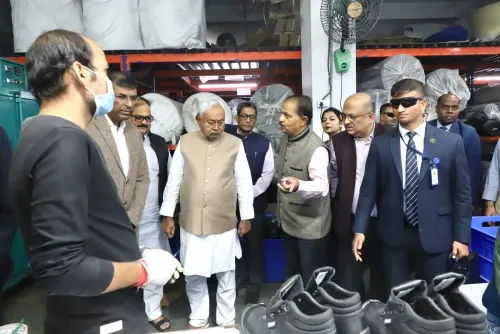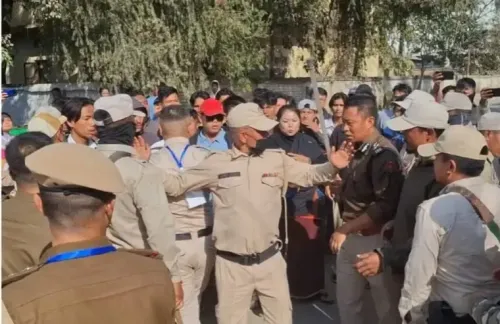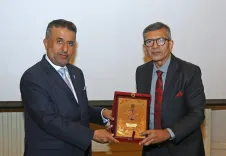What Legacy Did Dharmendra Leave in Bikaner?
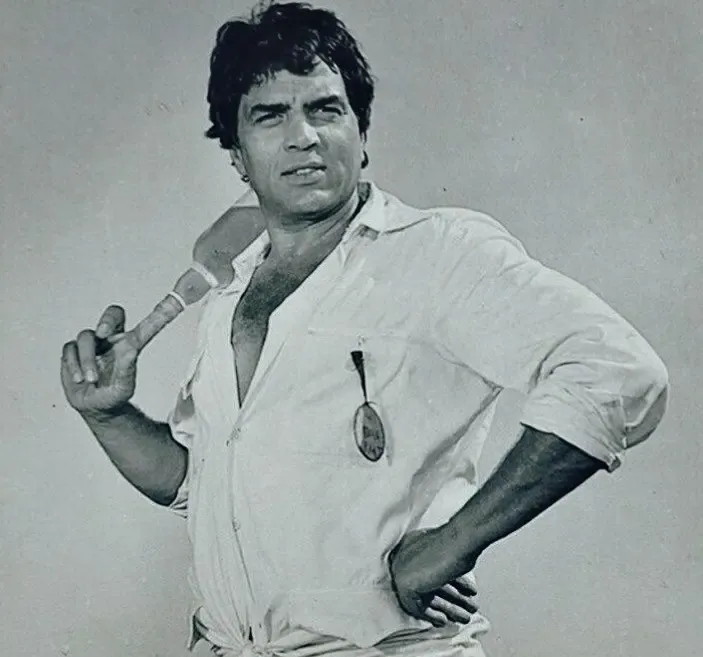
Synopsis
Key Takeaways
- Dharmendra's legacy in Bikaner is marked by warmth and kindness.
- He championed the Sursagar project, addressing community needs.
- His respectful approach towards political rivals set a new standard in politics.
- He maintained deep connections with locals, earning lasting affection.
- His contributions continue to be honored through community projects in Bikaner.
Jaipur, Nov 24 (NationPress) The city of Bikaner in Rajasthan mourned the loss of a cherished figure on Monday, as it bid farewell to a former MP and a beloved personality whose emotional connection with the city often eclipsed his political errors.
Dharmendra, who departed this world at the age of 89, brought the charisma of a cinematic star into his public endeavors. In the realm of politics, he was marked by his compassion, modesty, and sincere intention to make a difference.
Despite his brief tenure in Bikaner as a member of parliament, Dharmendra made a significant impact by championing the long-overdue Sursagar project.
Concerned about the state of the lake during his election campaign, he took it upon himself to engage with the then Chief Minister Vasundhara Raje and later consulted with union ministers in Delhi to secure additional funding. He even allocated his own MP funds to ensure the project's advancement—an initiative that locals still appreciate.
His 2004 election campaign was also remarkable for its civility. Even while contending against Congress candidate Rameshwar Dudi, Dharmendra refrained from attacking him, despite facing direct prompts to do so.
Instead, he often referred to Dudi as his 'younger brother', setting a commendable example of decorum in politics. Dudi, in turn, avoided personal attacks throughout the campaign, making it one of the most amiable elections in the region's history. Dharmendra's star power was evident.
As the competition heated up, he brought his sons Sunny and Bobby Deol to Bikaner, attracting large audiences and uplifting the atmosphere in urban areas of the constituency. This influx of support contributed to his resounding victory by 57,000 votes—largely fueled by the substantial lead he garnered in Bikaner city. Even during his time as an MP, Dharmendra was generous with development funding, regularly approving financial support for local organizations, institutions, and community projects.
Signs bearing his name still stand throughout Bikaner, serving as reminders of projects completed during his time in office, the majority of which were approved based on recommendations from party colleagues Satyaprakash Acharya and Kamal Vyas.
His unique relationships within the party lent warmth to his public image. Dharmendra would affectionately refer to his election in-charge, Manikchand Surana, as 'coat-wearing Netaji', a nickname derived from fondness rather than animosity.
Although they occasionally disagreed, Dharmendra always recognized Surana's thorough planning and commitment. Perhaps the most compelling proof of his popularity arose not from political achievements but from the affection he inspired in people.
For Bikaner, Dharmendra will be remembered not for the controversies around him but for the kindness he exhibited, the development initiatives he championed, and the love he demonstrated towards both supporters and adversaries. His political journey may have been unconventional, but his connection with Bikaner is deeply valued.

